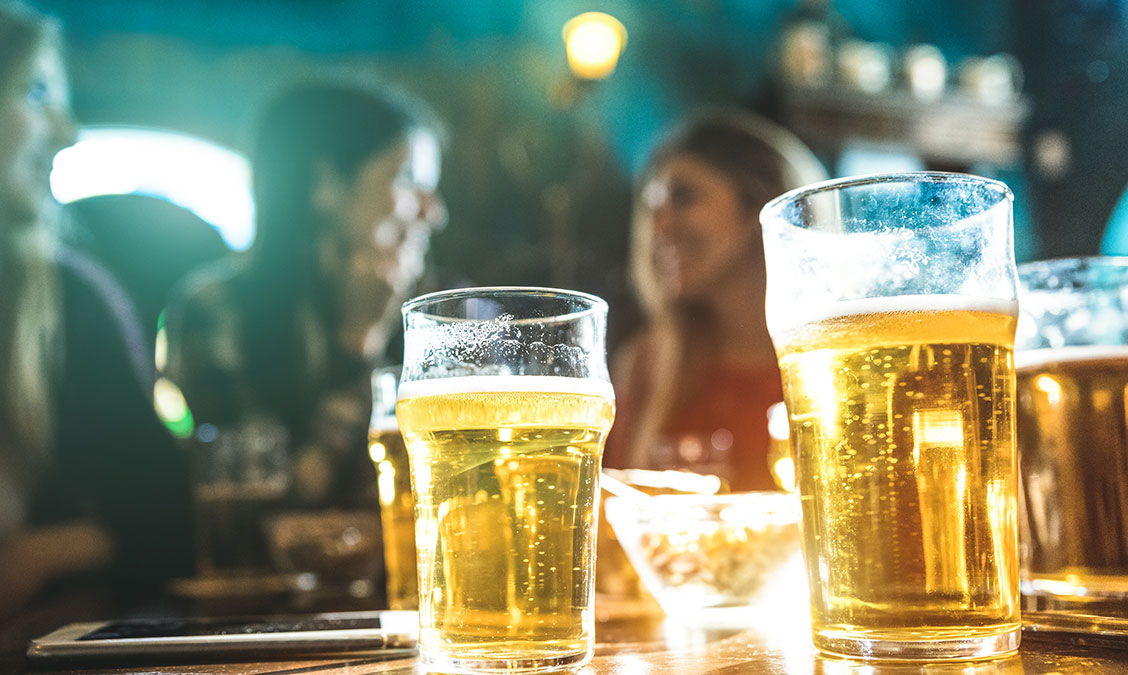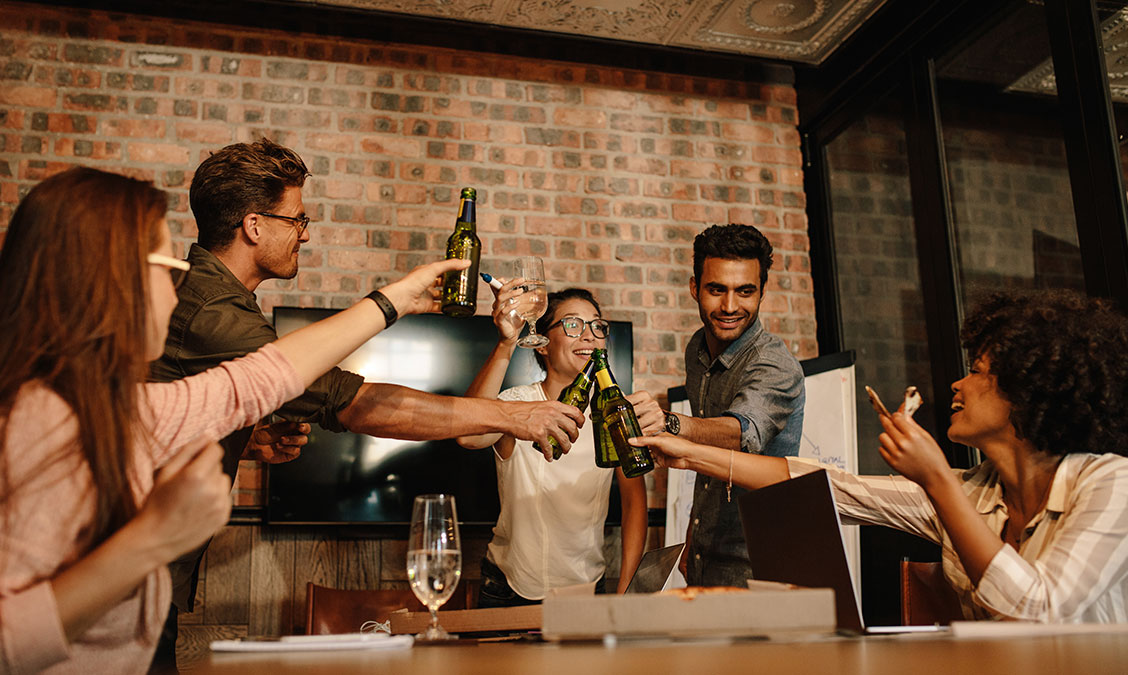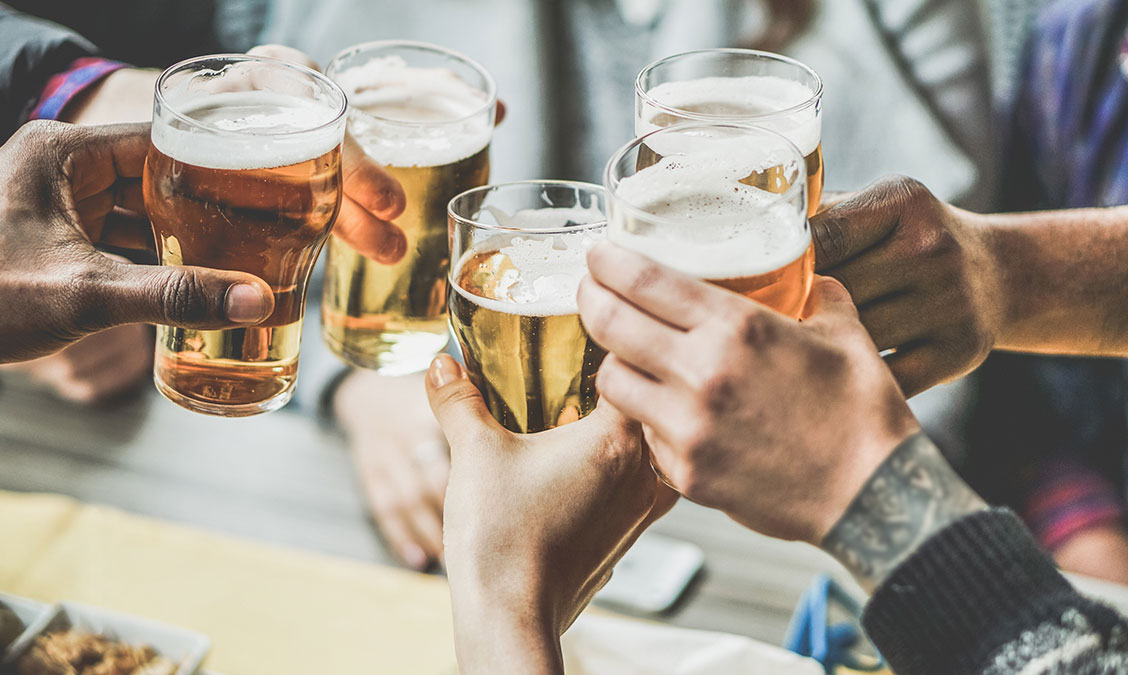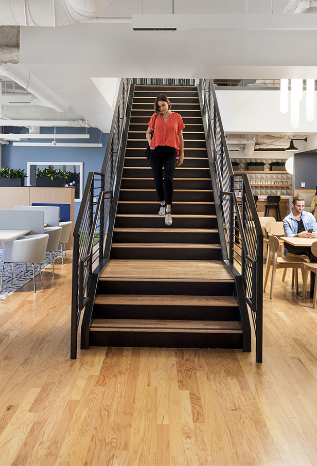Workplace drinking culture costs the UK economy more than £7 billion annually, and 4 in 10 employers say alcohol is a productivity killer, but a few small changes this year can help.
Drinking culture at work seems harmless. Whether socialising, working late or having a crazy night out with the team, booze can improve the mood, accelerate bonding and create memories. A few drinks can even encourage creative problem-solving.
But considering up to 5% of all work absence is alcohol-related and that health problems linked to drinking can cause anxiety, stress and a decline in productivity, company leaders are reassessing their organisation’s relationship with booze.
How often do Brits drink alcohol?

Around eight in ten people over 18 drink alcohol in the UK. While 23% drink 1-2 days a week, wine, beer and spirits are the top three most popular choices, 8% of men and 5% of women say they drink daily.
Last year, 7% of adults in the country were considered dependent drinkers, an increase from 6% in 2021.
Alcohol’s impact on work performance

Alcohol increases instances of presenteeism at work – in the UK, more than a quarter of people (33%) have turned up at work with a hangover from the night before. It also drives absenteeism, with around 17 million working days lost yearly.
One study suggests that people who drink more than average are three times more unproductive at work.
NLP Hypnotherapist and Mental Health Professional Nicholas Barnes says alcohol impacts people at work in several ways, from dulling problem-solving skills, judgement, and concentration to slowing reaction times. And the long-term health implications can be serious.
“Alcohol affects the memory. It causes a lack of Thiamine B1 and Korsakoff’s Syndrome, a memory disorder affecting your short-term memory. Cutting down can have very positive effects on the way you look and feel within just a few days, and then you’ll be reducing your lifetime risk of serious illnesses, such as cancer, liver and heart disease.”
What you can do as a business owner

We already know Gen Z drinks less than any other generation and that ‘sober curious’ and ‘mindful drinkers’ are on the rise – those who abstain or who prefer quality drinking experiences over quantity. With people becoming more conscious about how and when they drink, demand for non-alcoholic drinks is skyrocketing, and the non-alcoholic beverage market is projected to grow to 1.78 trillion dollars by 2027.
One of the biggest things companies can do this year is reduce alcohol-focused events at work. Whether due to religion, health or general preferences, not everyone is interested in events and activities that revolve around drinking. Things like office happy hour or pub socials could be replaced or alternated with more diverse interests like volunteering, outdoor activities, immersive shows or experiences.
- Reduce the amount of alcohol on offer at company events, and ensure there are non-alcoholic options available
- Get your team involved, anonymously if needed, to find out how people feel about company events that include alcohol
- Change the types of social events on offer and include more diverse activities
If you or someone you know needs help, visit Drink Aware for information on how to reduce and stop drinking.

